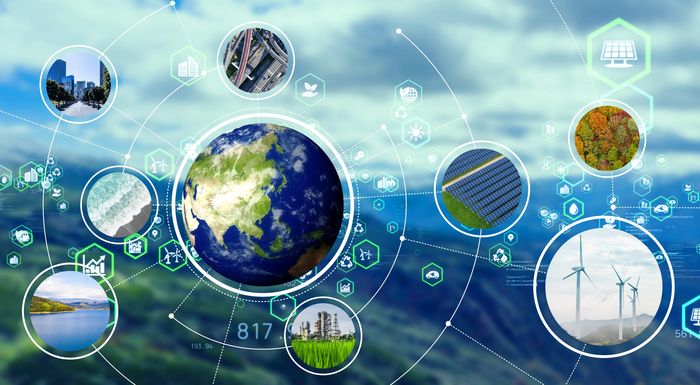
With the UK’s COP presidency handed over to Egypt and Britain’s record autumn temperatures make way for winter, the debate over energy security is heating up at home.
At an international level, COP27 wrestled with the debate about how decarbonising national energy mixes can come into direct conflict with short-term energy security to keep the lights on.
But climate security and energy security are inextricably linked and organisations across the UK can take the lead by enabling energy security, whilst helping to drive decarbonisation at the same time.
Once organisations take the step to invest in energy security, there are three tangible stages to ensure energy security in this unpredictable market – and in the cheapest and most carbon-efficient way.
The first stage is to gain a thorough understanding of how your organisation consumes energy today and reduce that use where possible.
By monitoring consumption, it becomes easier to identify ways to stop energy waste and optimise the running of your built environment through quick, easy-win savings.
An energy partner can prove invaluable at this stage, helping you to incorporate sensors and other monitoring technologies including integrated Building Management Systems, to paint a clear picture of what you are using, how and when.
You can then use that data to create the insights to optimise your building. This can include whether things that use energy can be turned off at certain times of the day, such as not leaving lights and monitors on overnight, or identifying unused areas of the building that are still consuming energy unnecessarily. By harnessing this technology, we can be smarter in how we use our buildings – for instance, the average building could save a month’s worth of energy by cleaning at different times of the day if this fits with operation of the facility.
The second stage is to invest in energy efficiency initiatives and take steps to generate as much of your own power as possible.
Through better insulated building fabric, such as enhanced wall insulation, double or triple glazing, and improved roof insulation, and by investing in on-site energy generation through technologies like solar panels, it’s possible to achieve low rates for the long term and stay protected from a volatile market.
Solar will also help to accommodate the increase in electrification needed for decarbonisation and move away from more carbon-intensive gas. Russian gas imports accounted for 31% of European supply in 2020, but this is changing as the continent weens itself off Russian imports. At the same time the cost of solar energy has fallen by 82% over the last decade with the average pay back on investment for solar projects now just five years, meaning there has never been a better time to invest in solar. Eliminating gas from estates is a crucial step in itself to reach Net Zero targets and ensure longer-term energy security.
The UK also doubled down on its Zero Emissions Vehicles Declaration at COP27, with the UK set to ban sales of diesel and petrol cars by 2030. With electric vehicles an area of increasing focus moving forwards, this is a good time to start thinking about opportunities to drive forward electric vehicle infrastructure on your estate. Not only will this set you apart as a sustainability leader, but you can also power it through your on-site generation.
The final stage on the road to energy security is to devise a robust energy and risk strategy for generating the remainder of your required supply.
This strategy should allow you to lock in lower prices for longer through fixed, long-term contracts or Power Purchase Agreements (PPAs) which can protect you from unexpected market fluctuations. PPAs are contracts that agree to sell a certain amount of the energy you produce back to the grid or other customers in exchange for reducing upfront investment for new generation projects.
Such a PPA should ensure contracts have the requisite flexibility to help you maintain your risk strategy and meet sustainability commitments. Again, an expert energy partner can help you work out the details, and even provide advice on the most appropriate ways to meet your demand with green energy solutions, a PPA directly linked to facilities via a ‘private wire’ can provide even more benefit because distribution costs are then fixed.
All organisations across the UK should develop their own energy security strategy by taking a decarbonisation approach. This will help to offset the risk of rising prices, help to meet organisation-level Net Zero commitments and ultimately improve the bottom line. By following these three stages, together we can reduce use, lock in lower prices for longer and help to decarbonise Britain.
By Mike Sewell, Plan Zero Director, Mitie
The post Three stages to ensure your energy security appeared first on FMJ.








0 Comments